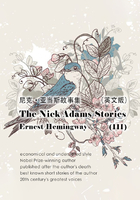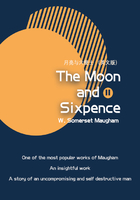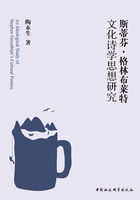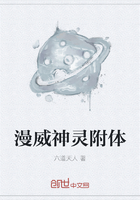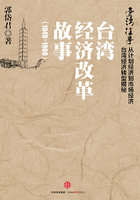But strange to say, all these measures, efforts, and plans- which were not at all worse than others issued in similar circumstances- did not affect the essence of the matter but, like the hands of a clock detached from the mechanism, swung about in an arbitrary and aimless way without engaging the cogwheels.
With reference to the military side- the plan of campaign- that work of genius of which Thiers remarks that, "His genius never devised anything more profound, more skillful, or more admirable," and enters into a polemic with M. Fain to prove that this work of genius must be referred not to the fourth but to the fifteenth of October- that plan never was or could be executed, for it was quite out of touch with the facts of the case. The fortifying of the Kremlin, for which la Mosquee (as Napoleon termed the church of Basil the Beatified) was to have been razed to the ground, proved quite useless. The mining of the Kremlin only helped toward fulfilling Napoleon's wish that it should be blown up when he left Moscow- as a child wants the floor on which he has hurt himself to be beaten. The pursuit of the Russian army, about which Napoleon was so concerned, produced an unheard-of result. The French generals lost touch with the Russian army of sixty thousand men, and according to Thiers it was only eventually found, like a lost pin, by the skill- and apparently the genius- of Murat.
With reference to diplomacy, all Napoleon's arguments as to his magnanimity and justice, both to Tutolmin and to Yakovlev (whose chief concern was to obtain a greatcoat and a conveyance), proved useless; Alexander did not receive these envoys and did not reply to their embassage.
With regard to legal matters, after the execution of the supposed incendiaries the rest of Moscow burned down.
With regard to administrative matters, the establishment of a municipality did not stop the robberies and was only of use to certain people who formed part of that municipality and under pretext of preserving order looted Moscow or saved their own property from being looted.
With regard to religion, as to which in Egypt matters had so easily been settled by Napoleon's visit to a mosque, no results were achieved. Two or three priests who were found in Moscow did try to carry out Napoleon's wish, but one of them was slapped in the face by a French soldier while conducting service, and a French official reported of another that: "The priest whom I found and invited to say Mass cleaned and locked up the church. That night the doors were again broken open, the padlocks smashed, the books mutilated, and other disorders perpetrated."
With reference to commerce, the proclamation to industrious workmen and to peasants evoked no response. There were no industrious workmen, and the peasants caught the commissaries who ventured too far out of town with the proclamation and killed them.
As to the theaters for the entertainment of the people and the troops, these did not meet with success either. The theaters set up in the Kremlin and in Posnyakov's house were closed again at once because the actors and actresses were robbed.
Even philanthropy did not have the desired effect. The genuine as well as the false paper money which flooded Moscow lost its value. The French, collecting booty, cared only for gold. Not only was the paper money valueless which Napoleon so graciously distributed to the unfortunate, but even silver lost its value in relation to gold.
But the most amazing example of the ineffectiveness of the orders given by the authorities at that time was Napoleon's attempt to stop the looting and re-establish discipline.
This is what the army authorities were reporting:
"Looting continues in the city despite the decrees against it. Order is not yet restored and not a single merchant is carrying on trade in a lawful manner. The sutlers alone venture to trade, and they sell stolen goods."
"The neighborhood of my ward continues to be pillaged by soldiers of the 3rd Corps who, not satisfied with taking from the unfortunate inhabitants hiding in the cellars the little they have left, even have the ferocity to wound them with their sabers, as I have repeatedly witnessed."
"Nothing new, except that the soldiers are robbing and pillaging- October 9."
"Robbery and pillaging continue. There is a band of thieves in our district who ought to be arrested by a strong force- October 11."
"The Emperor is extremely displeased that despite the strict orders to stop pillage, parties of marauding Guards are continually seen returning to the Kremlin. Among the Old Guard disorder and pillage were renewed more violently than ever yesterday evening, last night, and today. The Emperor sees with regret that the picked soldiers appointed to guard his person, who should set an example of discipline, carry disobedience to such a point that they break into the cellars and stores containing army supplies. Others have disgraced themselves to the extent of disobeying sentinels and officers, and have abused and beaten them."
"The Grand Marshal of the palace," wrote the governor, "complains bitterly that in spite of repeated orders, the soldiers continue to commit nuisances in all the courtyards and even under the very windows of the Emperor."
That army, like a herd of cattle run wild and trampling underfoot the provender which might have saved it from starvation, disintegrated and perished with each additional day it remained in Moscow. But it did not go away.
It began to run away only when suddenly seized by a panic caused by the capture of transport trains on the Smolensk road, and by the battle of Tarutino. The news of that battle of Tarutino, unexpectedly received by Napoleon at a review, evoked in him a desire to punish the Russians (Thiers says), and he issued the order for departure which the whole army was demanding.
Fleeing from Moscow the soldiers took with them everything they had stolen. Napoleon, too, carried away his own personal tresor, but on seeing the baggage trains that impeded the army, he was (Thiers says) horror-struck. And yet with his experience of war he did not order all the superfluous vehicles to be burned, as he had done with those of a certain marshal when approaching Moscow. He gazed at the caleches and carriages in which soldiers were riding and remarked that it was a very good thing, as those vehicles could be used to carry provisions, the sick, and the wounded.
The plight of the whole army resembled that of a wounded animal which feels it is perishing and does not know what it is doing. To study the skillful tactics and aims of Napoleon and his army from the time it entered Moscow till it was destroyed is like studying the dying leaps and shudders of a mortally wounded animal. Very often a wounded animal, hearing a rustle, rushes straight at the hunter's gun, runs forward and back again, and hastens its own end. Napoleon, under pressure from his whole army, did the same thing. The rustle of the battle of Tarutino frightened the beast, and it rushed forward onto the hunter's gun, reached him, turned back, and finally- like any wild beast- ran back along the most disadvantageous and dangerous path, where the old scent was familiar.
During the whole of that period Napoleon, who seems to us to have been the leader of all these movements- as the figurehead of a ship may seem to a savage to guide the vessel- acted like a child who, holding a couple of strings inside a carriage, thinks he is driving it.

